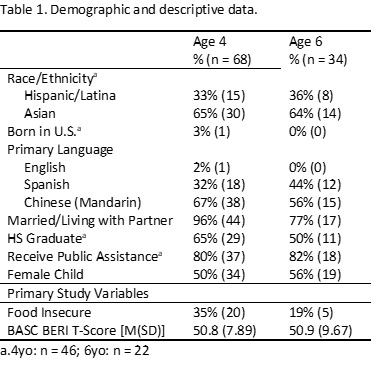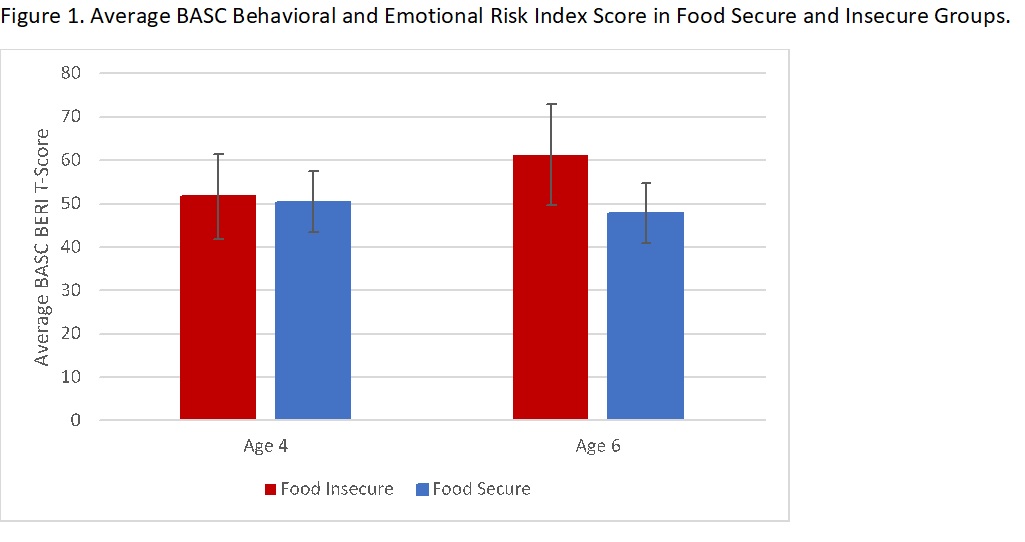Health Equity/Social Determinants of Health
Session: Health Equity/Social Determinants of Health 8
314 - Food Insecurity and Child Socioemotional Outcomes at School Entry Among Families in Together Growing Strong
Sunday, May 5, 2024
3:30 PM - 6:00 PM ET
Poster Number: 314
Publication Number: 314.2122
Publication Number: 314.2122

Caitlin F. Canfield, PhD (she/her/hers)
Assistant Professor
Hassenfeld Children's Hospital at NYU Langone
New York, New York, United States
Presenting Author(s)
Background: Stressors related to poverty and structural racism affect children’s development both directly and indirectly through impacts on parents and families. For instance, food insecurity has both direct biological effects and multilayer psychosocial impacts on children. As children enter school, impacts of food insecurity on socioemotional development may have far-reaching consequences for classroom engagement and academic performance. Given this, initiatives aimed at promoting positive child outcomes need to consider child, family, and social influences on development. Together Growing Strong (TGS) is a place-based initiative in Sunset Park, Brooklyn that seeks to do this by integrating programs and strengthening systems that support families, educators, and healthcare providers in a community-partnered and equity-focused model.
Objective: To examine the association between food insecurity and children’s socioemotional development among families in Sunset Park, Brooklyn.
Design/Methods: Data were analyzed from the ongoing cross-sectional arm of the TGS Children, Caregivers, and Community (C3) study. Parents of 4 (n = 68) and 6 (n = 34) year old children completed surveys of family well-being and children’s development. Primary predictor: Food insecurity (USDA Food Security Survey). Primary outcome: child socioemotional school readiness (BASC-3 Behavioral and Emotional Risk Index). Covariates: Race/ethnicity, parent education, marital status.
Results: Participants primarily identified as Latinx (31%) or Chinese (68%); nearly all received public assistance (97%; Table 1). Multiple regression analyses indicated that food insecurity was negatively associated with socioemotional outcomes among 6-year-olds, b=13.00, p<.05, but not 4-year-olds, b=.90, p=.74 (Figure 1). The significant association for 6-year-olds held in both Latinx, b=21.75, p<.01, and Chinese, b=18.00, p<.01, samples.
Conclusion(s): These results add to our understanding of the impacts of food insecurity, especially for school-aged children. Our findings that there was no association between food insecurity and children’s socioemotional outcomes in 4-year-olds contradicts previous research with preschoolers and indicates that impacts may vary across geographic and racial/ethnic communities. However, the association between food insecurity and behavioral and emotional health in 6-year-olds supports the importance of continuing to screen for food security in the pediatric clinic even as children enter school age, and the critical need for programs targeting child development to consider and provide resources for both individual and systemic factors.


